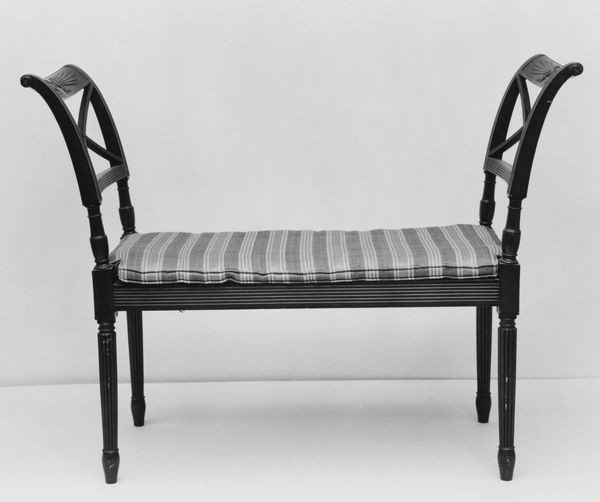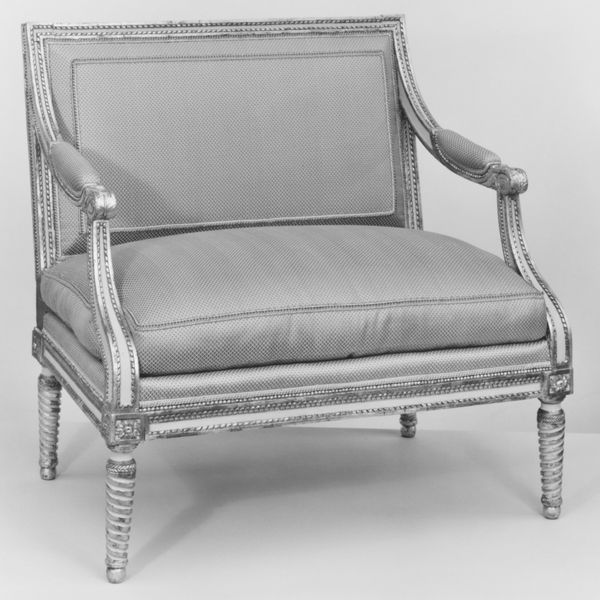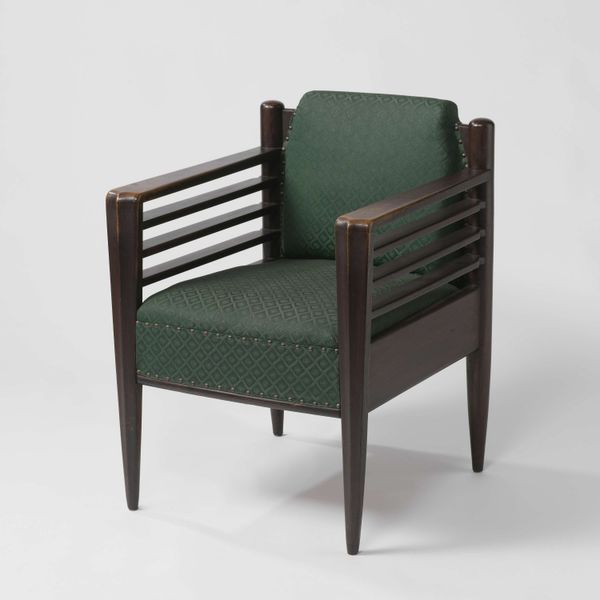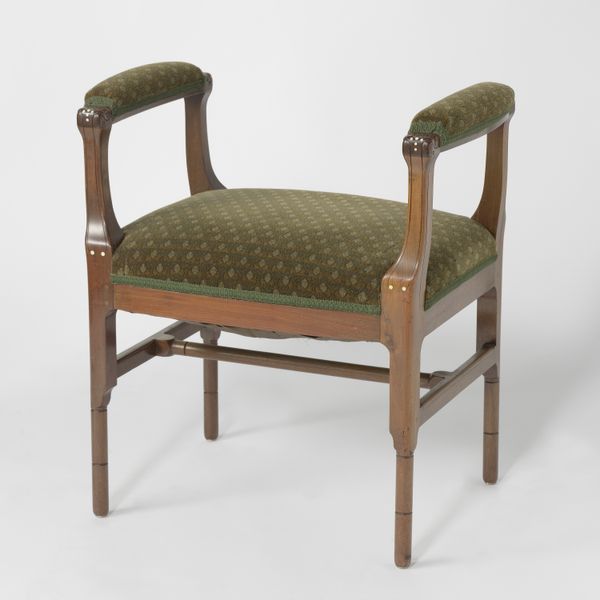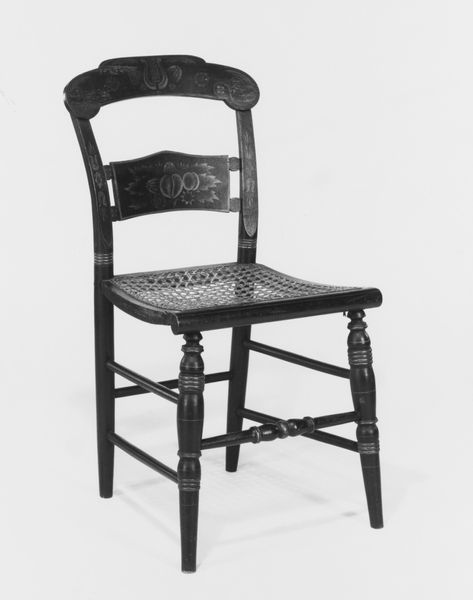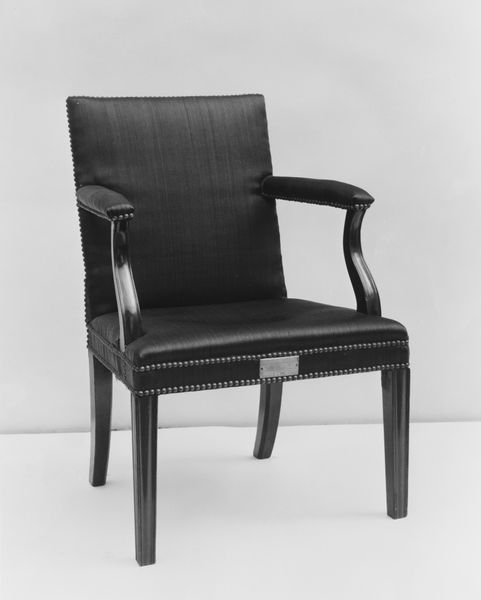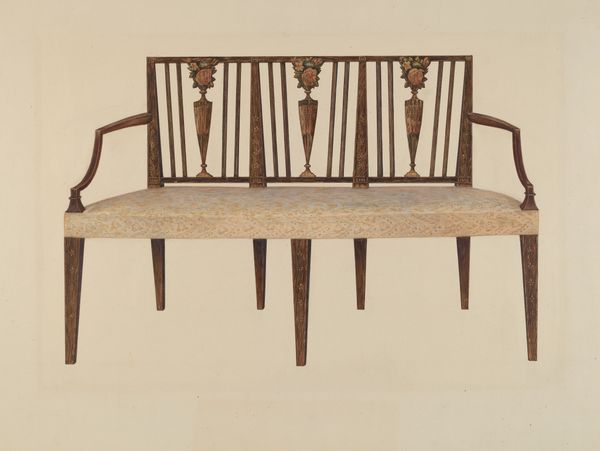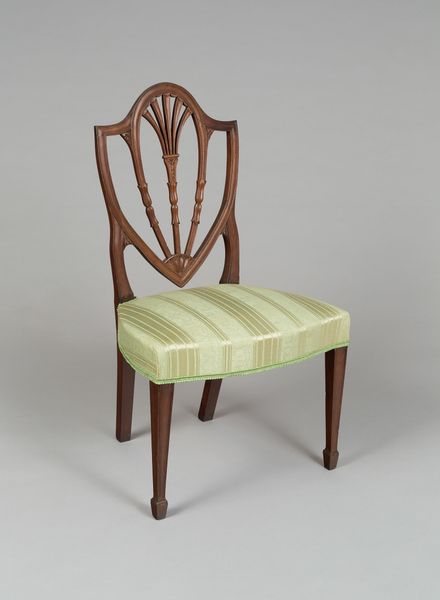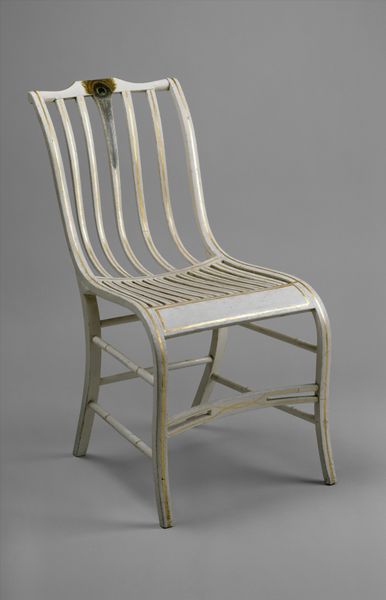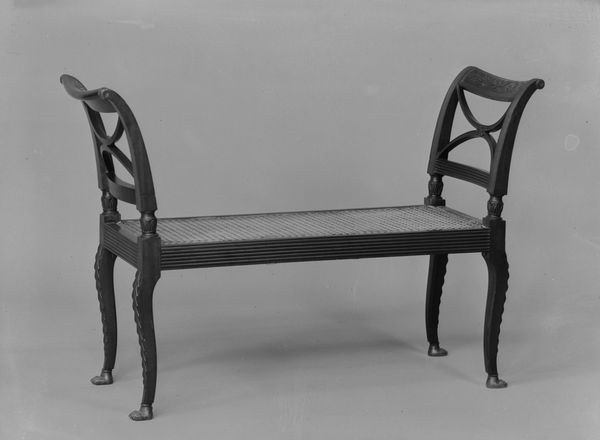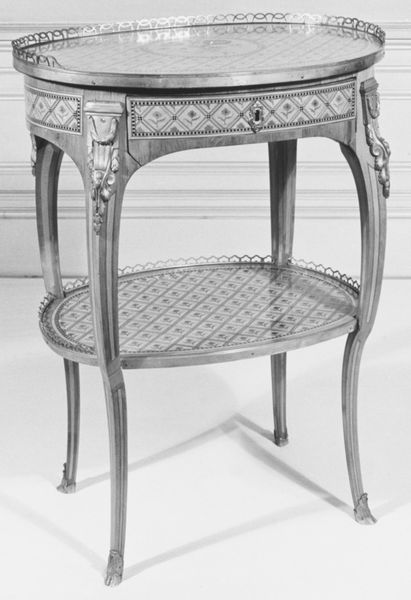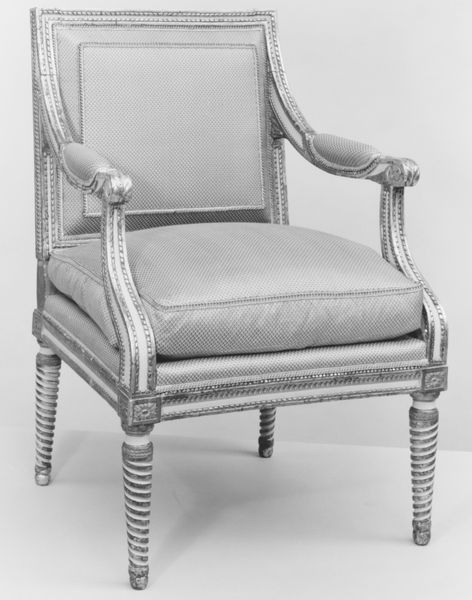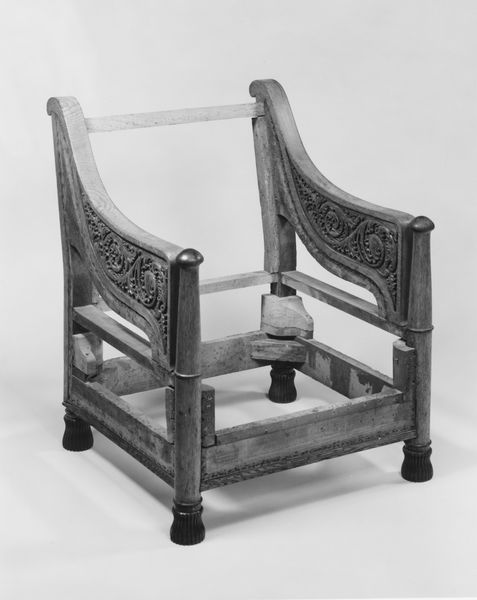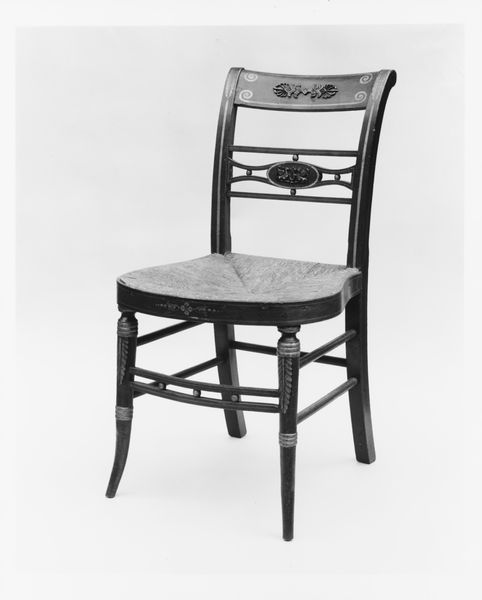
#
technical car design render
#
3d model
#
3d printed part
#
plastic material rendering
#
virtual 3d design
#
product design photgrpaphy
#
3d shape
#
metallic object render
#
united-states
#
mechanical engineering model
#
product render
Dimensions: 32 1/2 x 41 3/4 x 15 1/4 in. (82.6 x 106 x 38.7 cm)
Copyright: Public Domain
Curator: What strikes you most about this piece? Editor: Oh, instantly? It's like a minimalist throne! Regal, but with a shy charm. The stripes almost feel too casual for the detailed woodwork, though, right? Curator: Perhaps that juxtaposition is intentional. This "Window Stool" was crafted between 1805 and 1815, and we attribute it to the workshop of Duncan Phyfe, here in the United States. Editor: Phyfe, you say? I'm imagining it pulled up to a bright window in some grand Federal-style home, ladies gossiping while bathed in sunlight… Or perhaps a moody gentleman brooding? Curator: Most likely! Pieces like these signify a rise in disposable income and, consequently, a leisure culture. A home with such an intentional stool spoke to wealth. Think of the implications: transatlantic trade networks providing fine wood and textiles, artisan workshops scaling up to meet demand… Editor: While I get the economic angles, I see artistry! Notice the fluted legs—a nod to classical forms but rendered with such restraint. And the intersecting X shapes in the back? Almost a secret code... Did sitting on this make you feel part of some powerful, subtle revolution? Curator: A design revolution, perhaps. American furniture was coming into its own. Designers responded to neoclassical European trends while infusing pieces with distinct local style. The choice of where you sit always implicates one's power... the choice and position say everything. Editor: A well-positioned bum, indeed. I love how everyday objects contain entire eras, captured in form and function. The more intimate and banal a thing is, the more I crave it, knowing how society rests atop a good chair. Curator: Precisely! It serves as a tangible link to a specific historical context. Studying form also speaks to cultural and financial evolution, revealing so much through what may seem like simple furniture. Editor: So, beyond pretty butt rests and socioeconomic implications, here's to appreciating this elegant little perch, its silent story a gentle reminder that even mundane spaces can echo with histories.
Comments
No comments
Be the first to comment and join the conversation on the ultimate creative platform.
